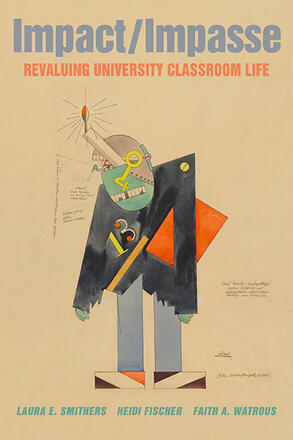
Impact/Impasse
Revaluing University Classroom Life
Alternative formats available from:
Makes a case for the value—and ultimately impact—of seemingly mundane moments in college classrooms.
Description
Impact/Impasse argues for the value of everyday life in college classrooms. Quantifiable categories such as high-impact practice, student engagement, and integrative learning have captured the imagination of a generation of higher education researchers, practitioners, administrators, and policymakers. But they miss those mundane moments, or "impasses," that resist capture by metrics while nevertheless shaping student outcomes. Impact/Impasse blends critical theories and ethnographic research—conducted before and during the COVID-19 pandemic—to argue that learning happens in ordinary moments. Indeed, in sharing anecdotes from both in-person and virtual classrooms, the coauthors show how the so-called new normal is little different from the old in its neoliberal attachment to data. Impact/Impasse provides a conceptual and practical foundation for an alternative approach to valuing impacts on their own terms, in excess of quantification.
Laura A. Smithers is Assistant Professor of Higher Education Leadership at the University of Nevada, Reno. Heidi Fischer is Content Director at Hanover Research. She is the author of Unemployment: The German Case, A Critical Analysis of Political Discourse. Faith A. Watrous is a doctoral candidate in Educational Psychology and Program Evaluation at Old Dominion University.
Reviews
"“Impact/Impasse creates a kind of interactive engagement between the reader and the text not often found in higher education. In presenting short essays more akin to 'field notes' than traditional formal analysis, the book offers a mechanism to help students think through how they make sense of different phenomena and events. The text also performs this kind of thinking, especially in relation to the pesky notion of 'normal.' Throughout, we witness students, staff, faculty, and the authors themselves grapple with normal notions even as the written text itself plays with normal prose (academic and otherwise). This innovative approach will contribute to fields that rely on reproductive senses of 'normal practice' for recognition and legibility.” — Aaron M. Kuntz, author of Qualitative Inquiry, Cartography, and the Promise of Material Change